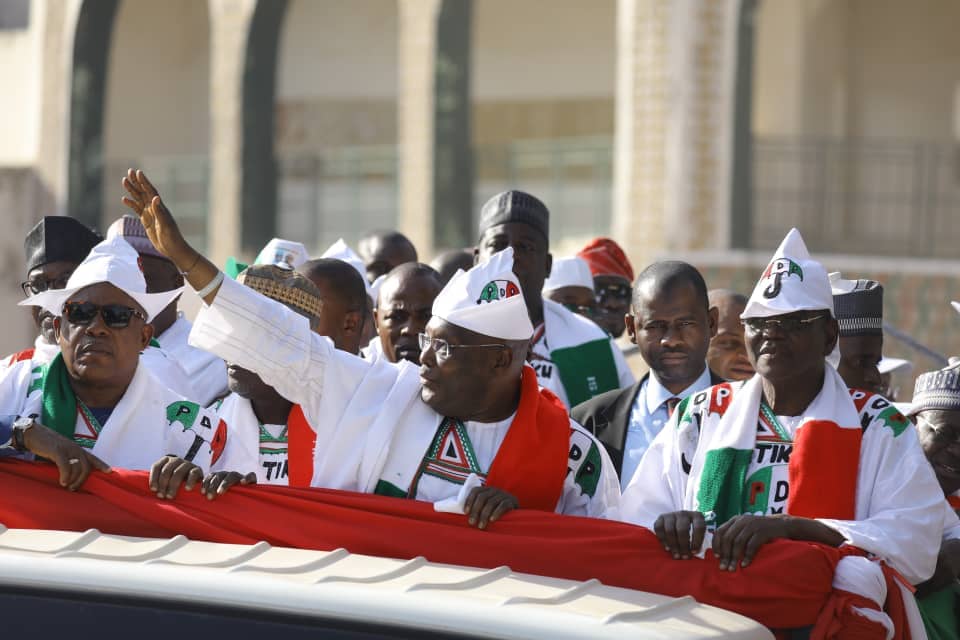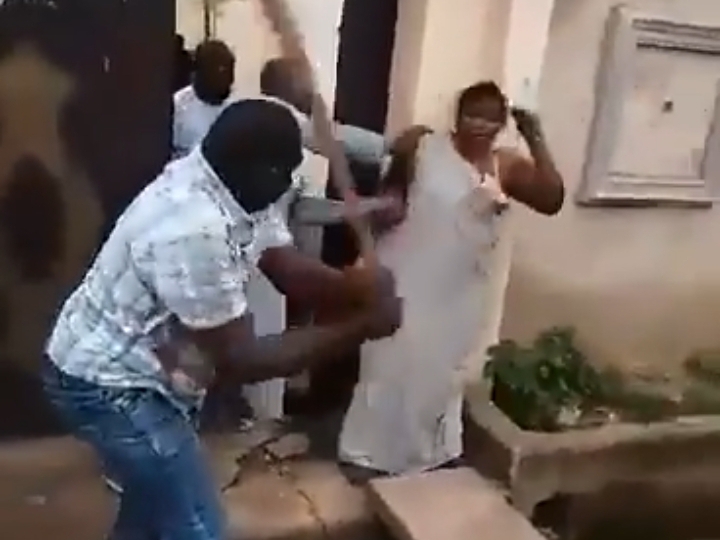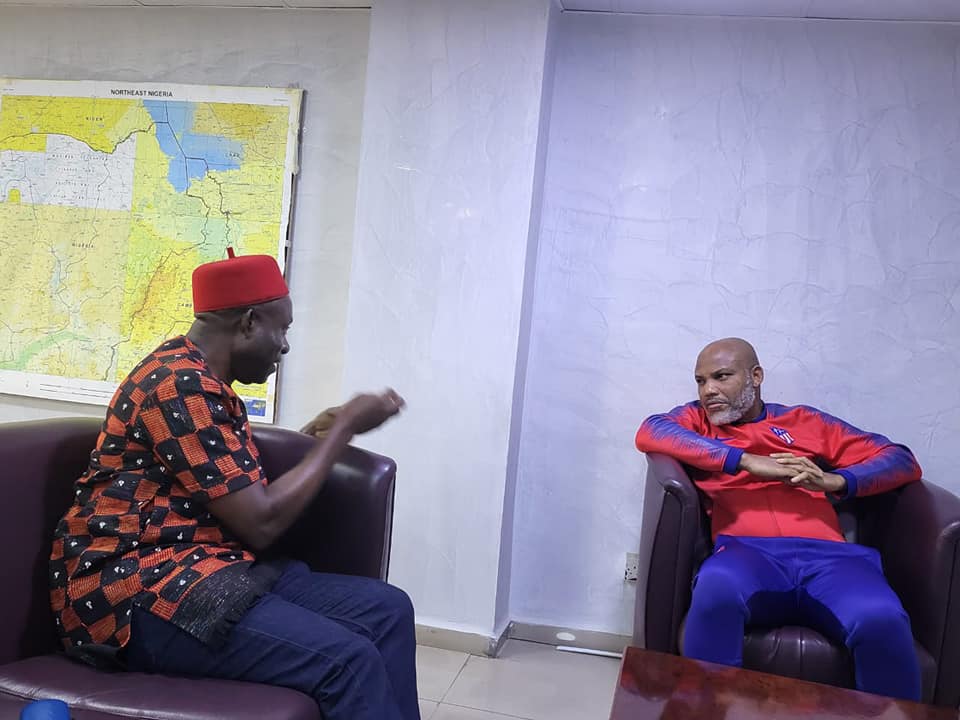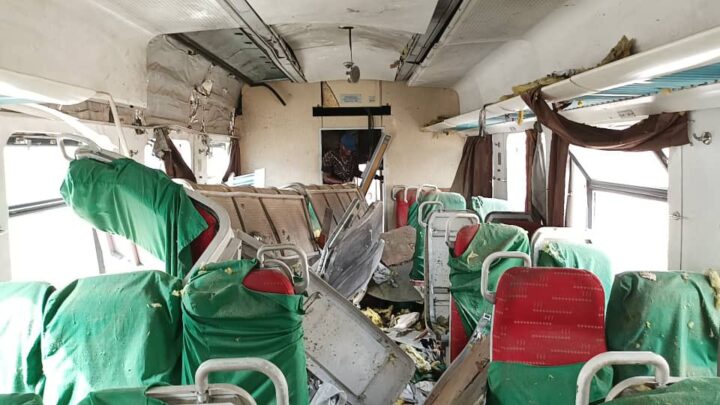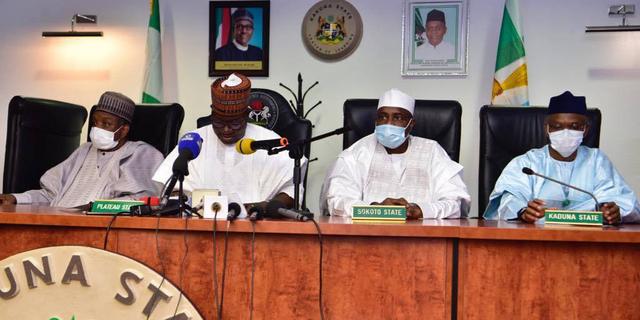Deborah Samuel was lynched for alleged blasphemy
The stoning to death of Deborah Samuel, a student of the Shehu Shagari College of Education, Sokoto, over alleged blasphemy is a timely reminder that retail religious extremism is very much alive and kicking in northern Nigeria. It has been quite a while since killings over “blasphemy” took place in the north and the tendency is to think we have overcome this impulsive, irreversible reaction to a perceived religious offence. We are certainly not yet out of the woods. Deborah’s killing, which I learnt was recorded on video and shared on social media, shocked many young Nigerians who were likely seeing such a gory incident on our shores for the first time in their lives.
Perhaps the most unforgettable case took place in Kano in December 1994. Gideon Akaluka, a trader, was accused of “desecrating the Qur’an” and beheaded. His head was mounted on a stick and paraded on the streets of Kano like a trophy. We heard that Gen Sani Abacha, then-head of state and himself a Muslim, was so furious he did not subject the suspects to a formal trial before executing them. In the end, the sheet of paper that Akaluka “desecrated” was apparently the leaflet instructions of a medication, written in English and Arabic. There are people who still don’t know that Arabic is a language and not a religion — and that there is an Arabic Bible for Arab Christians.
Another religion-fuelled lynching that I can immediately recall happened in March 2007. The victim was Mrs Christianah Oluwaseesin, a secondary school teacher in Gandu, Gombe state. She was supervising an Islamic Religious Studies exam. According to what we were told, a student wanted to take her bag into the hall. The teacher seized and threw it outside, and the student screamed that it contained a Qur’an. The mother-of-two was subsequently lynched “for desecrating and mutilating the Qur’an”. The principal, a Muslim, who tried to save her was battered while three classroom blocks, the school clinic and the library were burnt. Suspects were arrested and that was it.
For a while, there seems to be a pause in Muslim/Christian hostilities in the north — save for the intractable crisis in southern Kaduna, which dates back to at least 1987, and the Plateau killings that exploded in 2001 and keep exploding till today. The general lull, in my opinion, is not because anything has changed in the animosity but possibly because there is a bigger enemy at the door: Boko Haram. Since the group launched into full-scale terrorism in 2009, it has been taking victims from both religions. Contrary to what you read on social media, Boko Haram has evidently killed more Muslims than Christians and was at a time targeting mosques in Kano, Yobe and Borno states.
Advertisement
Surely, before the Boko Haram era, religious killings were common in the north but it was usually as a result of confrontations between Christians and Muslims. With Boko Haram becoming a common threat, the confrontations reduced. The sense flowing from this is that by the time the Boko Haram era is subdued or exterminated, normal hostilities between Christians and Muslims may resume. It appears to be a conflict without end, always on ice and waiting for the opportunity to rupture. There are many reasons responsible for this perpetual state of hostilities and I would think that a country that has responsible leadership will work day and night to manage this animosity with dexterity.
Will this enmity end anytime soon? The Sokoto incident is not an encouraging signal. If students of a higher institution — where teachers are being trained — can take law into their hands in this manner, lynching and burning the body of a fellow student, it only offers more than a passing glance at the future. The factory for the production of Boko Haram and ISIS militants is very much in full production. We typically think these terrorists recruit street urchins, but the conduct of the tertiary school students in Sokoto shows clearly that the pool of talents, as it were, is larger than the uneducated and unemployed youths out there. Boko Haram would have their eyes on them.
Before I proceed, I need to make something very clear: I do not support insulting people’s religious sensibilities in the name of “free speech” — although I must emphasise here that nothing on earth can justify jungle justice. Deborah’s killing remains outrageous and stands condemned. But every freedom comes with responsibility. For some people, religion provides the highest form of emotions and any attack on their beliefs will trigger the worst in them. It is important that we understand our differences and respect the boundaries. It is, however, also very important to respond to offences within the limits of the law. Even if somebody kills your mother, there is a process to seek justice.
Advertisement
Meanwhile, I want to commend all the Muslims and Muslim groups who have been courageous enough to condemn the killing of Deborah. It is a hard thing to do because they too can be attacked by the extremists. Every Muslim is hurt when the Prophet is insulted, but everyone doesn’t react the same way. You can be angry and still restrain yourself from taking an irreversible action. Many Muslims have been sending messages to me quoting verses in the Qur’an that condemn jungle justice. In an Islamic society, if someone is accused of blasphemy, there is a laid-down process to deal with it. This is to avoid miscarriage of justice. The extremists, however, always act differently.
I have read some comments on social media that show how ignorant many people are about the ethnic and religious make-up of Nigeria. Some are using this opportunity to call for “restructuring”. But Deborah was a Christian from Niger state, not Ondo or Rivers. Will “restructuring” relocate Zuru Christians from Kebbi to Anambra? Some are asking what Christians “are still doing in the north”, perhaps unaware that there are indigenous Christians in every northern state. Many attacked Lord Lugard yet again for the amalgamation of 1914. But was it Lugard that created northern Christians? I am not against people playing politics but a little dose of logical reasoning will not kill anybody.
Having said that, however, I admit that our society has been shaped for ages to think and act in a particular way and this cannot change overnight. We need to work on it. In the north, religion is a major marker of identity. People identify themselves first by their religion before their ethnicities. This should put in perspective the unending conflicts and tensions along religious lines. (This is what some people are trying to introduce to Yorubaland, egged on by busybodies. As I warned in a previous write-up, it never ends well and I hope Yoruba people will not take the bait.) Ethnic groups in the north are dominated by a religion. Hence, ethnic conflicts inevitably appear to be religious.
How do we prevent more Deborah cases? The starting point is for religious leaders across the divides to continue to preach the message of mutual respect and tolerance. The message of disrespect and jungle justice has to stop. The message of peace and love must become pervasive. Christians and Muslims must commit to respecting each other’s beliefs. We need to be sensitive to what others hold dear and also know how to react with civility when we are offended. I have Catholic buddies whose beliefs about the Virgin Mary I do not share, but I am sensible enough not to go there. They may not lynch me because Christians take these things differently, but they will still be offended.
Advertisement
Two, government has to work with religious leaders and experts in conflict management to develop a system that will promote peace and pre-empt conflicts. There should be an alert procedure when tensions arise to prevent people from taking the law into their hands. There is no jurisprudence in the world that does not allow for fair hearing. In fact, Islamic jurisprudence allows for fair hearing, contrary to what the extremists want us to believe. Also, there should be an improved early-warning mechanism to flag potential confrontations and violence. Tensions can be nipped in the bud before things get out of hand. Interfaith dialogues must also be strengthened for better co-operation.
Three — and this is a long-term project — cross-religious education is very critical to dealing with our mindsets. I think the education ministry recently tried to introduce it but it was shot down because of the fear of “Islamisation”. It is tragic that in many parts of the north today, all a Christian student knows about Islam is what fellow Christians teach them and all a Muslim knows about Christianity is as taught by fellow Muslims. What they are taught is left to the imagination. People grow up with resentment, hate and disdain towards each other. Being a friend to someone of a different religion is taught as “contamination” — punishable by hellfire. This is full of dangers.
Finally, there must be consequences for jungle justice. Nobody should ever get away with taking the law into their hands — whether over religion or something else. It is most unfortunate that violence broke out in Sokoto on Saturday with people taking to the streets to demand the release of suspects. This is impunity. It is annoying. In a state ravaged by under-reported killings by bandits, where lies their priority? Truly, the government has a long way to go. A peace-building project is complicated and will take sincere and thinking leadership to deliver. The killing of Deborah was not just because of the WhatsApp message. That was just a trigger. This jungle justice mindset needs overhauling.
AND FOUR OTHER THINGS…
THUMBS UP!
Advertisement
With President Muhammadu Buhari failing to do the needful when his ministers started campaigning all over the country without resigning, one rare Nigerian stood out. His name is Dr Chukwuemeka Uwaezuoke Nwajiuba, a 54-year-old lawyer from Imo state who is seeking APC’s presidential ticket. He did the honourable thing by resigning. No desperation to hold on to his job. This most likely influenced Buhari’s belated decision to ask his politicking ministers to resign. Nwajiuba, a founding member of APP/ANPP, was elected into the house of reps in 1999 aged 32. He unsuccessfully contested for Imo governorship in 2003, 2007 and 2011. He is a rare Nigerian politician. Exemplary.
BIRD IN HAND
Advertisement
Dr Chris Ngige, the (former) minister of labour and productivity, dramatically pulled out of the presidential race on Friday by opting to return to the cabinet — after attending a valedictory session presided over by President Buhari. We seem to understand why he pulled out — a bird in hand, as our forefathers would say, is worth two in the bush. But he tried to mask the entire drama around the withdrawal of his resignation as being in the “overall interest of the nation”. Come on! How can serving 12 more months as minister be of more “national interest” than being president for a possible eight years? As they say on Naija Twitter, we play too much in this country. Hilarious.
FREE ZONE
Advertisement
The PDP has finally ditched power rotation, obviously based on its calculations on how to reclaim power from the APC. I foresee its northern presidential hopefuls eventually agreeing to queue up behind one of their own to ward off the challenge from Governor Nyesom Wike of Rivers state and Mr Peter Obi, former governor of Anambra state. The potential biggest loser would be the south-east which has always voted for the PDP in presidential elections since 1999 and desires to finally produce an Igbo president. PDP’s new disposition is all the more intriguing because it was the party that “created” power rotation. Compliance, or lack of it, has done much damage since 2010. Politics!
DANGER AHEAD
Advertisement
On Monday, the Academic Staff Union of Universities (ASUU) decided to extend its strike by three months. That is almost a whole semester, if I am not mistaken. There has been no love lost between ASUU and the government since this year’s strikes started on February 14. Our children in public universities are going to lose a whole academic year again. I remember my younger sister spending six years on a four-year course in the 1990s because of long ASUU strikes. The federal government and university teachers have to reach an agreement by any means. There are irreparable consequences of keeping teenagers idle for so long. Our future is in serious danger. Alarming.


